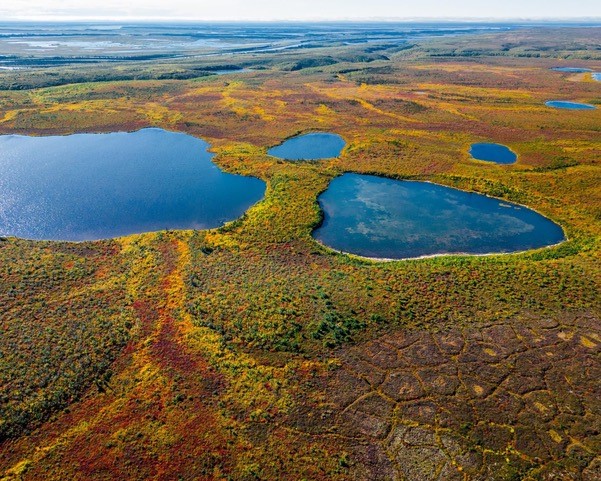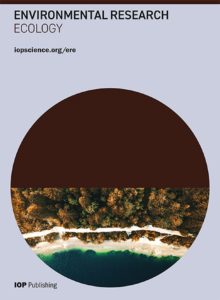ERE特刊征稿|Climate Change and Permafrost Ecosystems

特刊详情
客座编辑
- Donatella Zona,美国圣地亚哥州立大学
- Susanna Gartler,奥地利维也纳大学
- Mathias Goeckede,德国马克斯·普朗克生物地球化学研究所
- Annett Bartsch,奥地利b.geos公司
- Scott Goetz,美国北亚利桑那大学
主题范围
This focus collection will gather work from a range of projects to facilitate the wider communication of scientific contributions reporting on topics such as:
- Co-production of knowledge between scientists and local (Indigenous) communities
- Impacts of permafrost degradation on surface hydrology, vegetation composition and productivity, and thus the carbon balance of Arctic ecosystems
- Assessment of ways that changing vegetation structure, such as increased shrub and tree cover associated with warming and tree line migration, influences permafrost resilience or vulnerability
- Impacts of permafrost degradation (thaw, erosion) on infrastructure stability (e.g., buildings, roads, airstrips), water quality, food security, health & wellbeing and mobility & supply
- Impacts of permafrost degradation on culture, economy, planning, and recreation & being in nature
Particularly encouraged are submissions reporting on studies integrating multiple approaches within the same research project and novel ways to achieve this integration, as well as initiatives summarizing the scientific knowledge about climate change across the Arctic in layman terms, which can be used for communicating science to policymakers.
投稿流程
特刊文章与ERE期刊常规文章遵循相同的审稿流程和内容标准,并采用同样的投稿模式。
有关准备文章及投稿的详细信息,可以参阅IOPscience页面的作者指南。
作者可登入期刊主页进行在线投稿,在“文章类型”中选择“特刊文章”,并在“选择特刊”的下拉框中选择“Climate Change and Permafrost Ecosystems: Integrating Scientific, Indigenous and Local Knowledge to Understand Impacts on Coupled Socio-Ecological Systems”。
投稿截止日期:2023年9月15日。
期刊介绍

- Environmental Research: Ecology(ERE)是一本多学科、金色开放获取的期刊,致力于以关于全球变化、弹性、减轻和适应影响的兼具科学进展和评估的方式,解决在环境科学、大尺度生态学、生物多样性和保护的交界领域的重要全球挑战。本刊为促进环境科学家、生态学家、资源管理者和政策制定者的对话提供了论坛。本刊鼓励所有的研究方法,包括定量、定性、实验、理论和应用方法。本刊直至2023年底减免全部文章发表费用,即作者在此期间可以免费发文。
